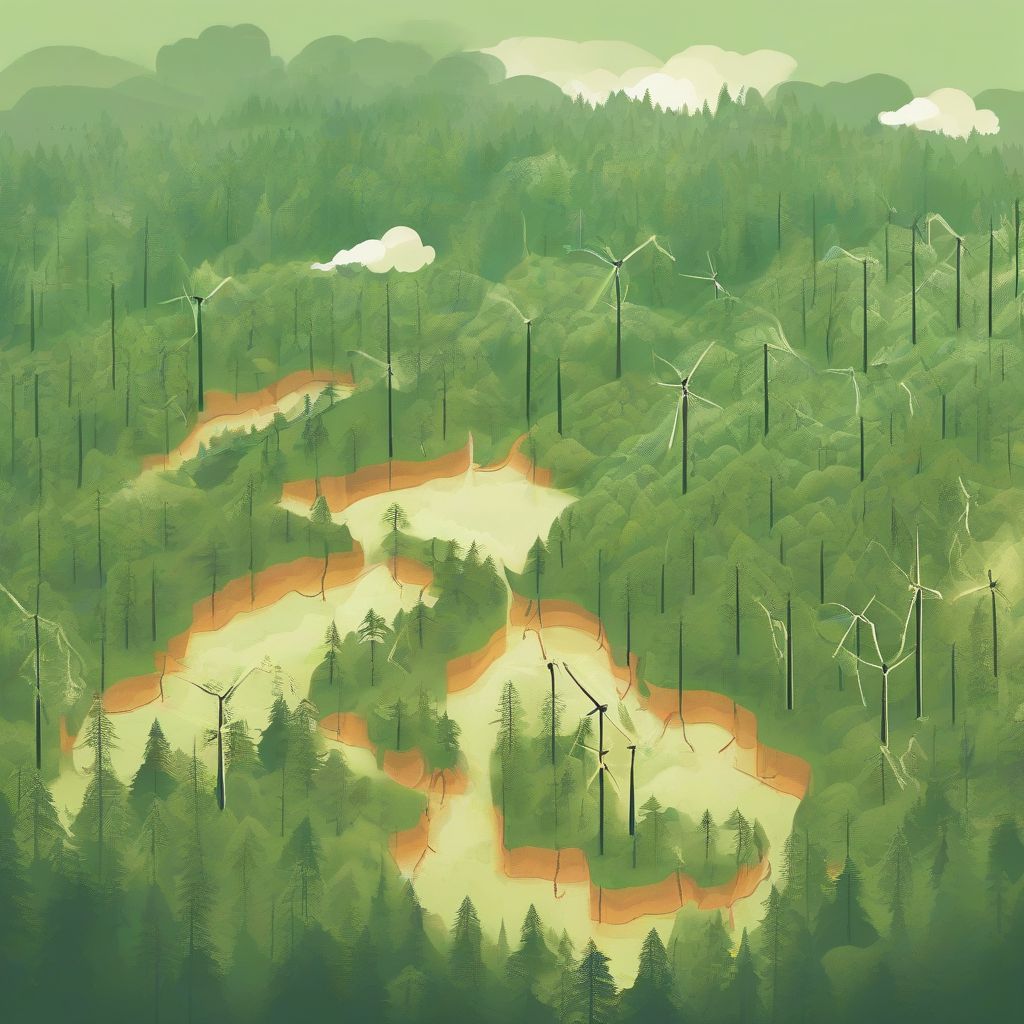Imagine waking up to a world where the air is heavy, the land is barren, and the vibrant symphony of nature is replaced by an eerie silence. This is the grim reality that deforestation threatens to bring. As a nutritionist, I understand the importance of a healthy ecosystem. Just like our bodies need nourishment from a variety of foods, our planet needs diverse ecosystems to thrive. Sadly, deforestation is putting immense strain on this delicate balance. Let’s delve into the profound impact of deforestation on global ecosystems.
The Far-Reaching Consequences of Deforestation
Deforestation, the clearing of forests for other land uses, has a ripple effect across the globe. While it might seem like a distant problem, its impacts are felt worldwide. Here’s how:
Climate Change Amplifier
Forests act as massive carbon sinks, absorbing carbon dioxide from the atmosphere. When forests are cleared and burned, this stored carbon is released, contributing significantly to greenhouse gases and accelerating climate change.
 Deforestation and Climate Change
Deforestation and Climate Change
Biodiversity Loss and Extinction
Forests are home to 80% of the world’s terrestrial biodiversity. Deforestation destroys habitats, disrupts ecosystems, and leads to the loss of countless plant and animal species, many of which are yet to be discovered.
Water Cycle Disruption
Trees play a vital role in the water cycle. They absorb rainfall and release it slowly, replenishing groundwater and regulating water flow. Deforestation leads to soil erosion, reduced water absorption, and increased risk of floods and droughts.
Soil Degradation and Desertification
Forest cover helps bind soil and prevent erosion. Deforestation leaves soil vulnerable to wind and water erosion, leading to desertification and reduced land productivity.
Addressing the Deforestation Crisis
While the statistics might seem daunting, there is hope. Combating deforestation requires a multi-faceted approach and global cooperation.
Sustainable Forest Management Practices
Promoting sustainable logging practices, reforestation efforts, and afforestation (establishing forests in areas that haven’t been forested recently) are crucial for preserving our forests.
Responsible Consumption
As consumers, we can make a difference by choosing sustainably sourced products, reducing our paper and wood consumption, and supporting companies committed to deforestation-free supply chains.
Policy Changes and Enforcement
Stronger government policies and regulations, along with effective enforcement, are essential for combating illegal logging and promoting sustainable land-use practices.
Our Interconnected Future
The health of our planet and our well-being are intrinsically linked. Just as our bodies need a balanced diet for optimal health, our planet needs healthy ecosystems to thrive. Protecting our forests is not just an environmental issue; it’s crucial for our survival and the well-being of future generations. By understanding the profound impact of deforestation and embracing sustainable practices, we can work together to preserve these precious ecosystems for a healthier planet.
[amazon bestseller=”Deforestation”]
What Can You Do?
Start small and make conscious choices in your daily life. Support organizations working to protect forests, spread awareness about the issue, and advocate for change. Together, we can make a difference in preserving our planet’s irreplaceable forests for generations to come.
What steps will you take today to help protect our forests? Share your thoughts in the comments below!
